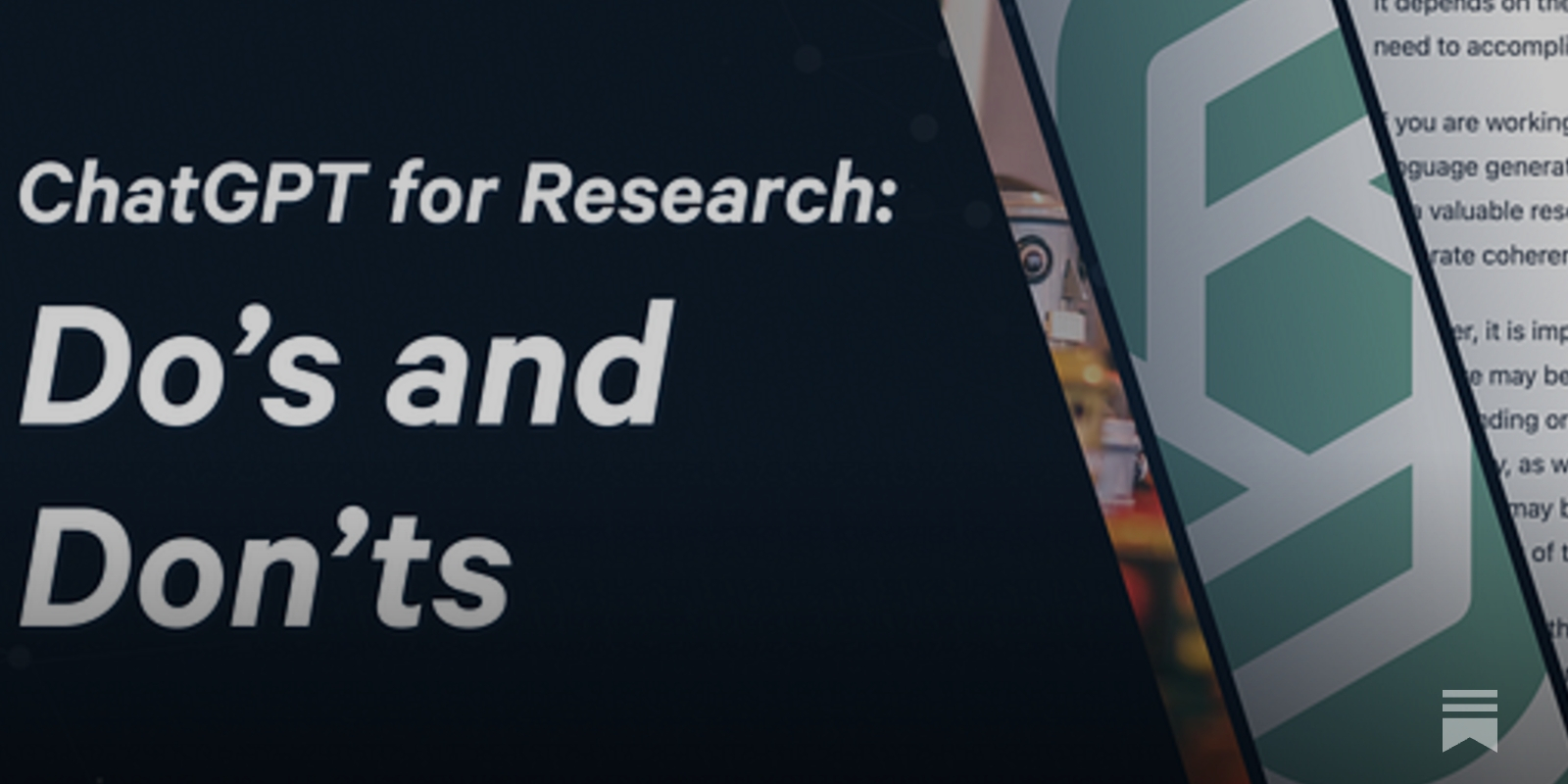Dos and Don'ts for Research Using ChatGPT
The way students and researchers access information has been transformed by AI-powered tools such as ChatGPT. ChatGPT has become a well-liked academic tool due to its capacity to produce summaries, explain difficult ideas, and aid in the creation of content. However, using it for research necessitates careful and moral application, even though it is really helpful.
To help you make the most of ChatGPT for research without making frequent errors, here is a comprehensive guide to the dos and don'ts of using it.
Dos: Intelligent Strategies for Research Using ChatGPT
1. Use It for Brainstorming Concepts
When you're at a loss for ideas, ChatGPT is a fantastic resource. It may help spark creative directions, whether you're looking into thesis ideas, research issues, or perspectives for your article.
"What are some current research trends in climate change and education? "
2. Ask it to clarify difficult concepts.
ChatGPT has the ability to simplify complex academic subjects into clear explanations. It resembles having a tutor available around the clock.
Advice: To increase comprehension, ask, "Is there a way to make this simpler? "
3. Do utilize it to make outlines and structures.
Do you need help planning your ideas? Ask ChatGPT to provide you with outlines for essays, reports, or presentations. Before you begin writing, this helps you build a solid base.
Use it as a framework, not a replacement.
4. Check Facts Using Trustworthy Sources
Although ChatGPT might help in locating key aspects, the data it offers could not always be current or correct. Verify any factual information using primary sources, such as peer-reviewed publications or government databases.
5. Use it to paraphrase and summarize.
ChatGPT can assist in summarizing the main points of long pieces of writing or articles. Additionally, it may help with content paraphrasing, which is useful for learning or writing in your own words.
Tip: Ask it to use a particular tone or word count.
6. Don't use ChatGPT; instead, cite outside sources.
In the end, your research's citation should point to the original source, not the AI, even if you use ChatGPT to aid in your comprehension of the subject.
Common Errors to Avoid: Don'ts
1. Don't Rely On It As Your Sole Source of Truth
Current academic journals and news are not available to ChatGPT in real time. Additionally, it can produce convincing but false data ("AI hallucinations").
Don't rely solely on ChatGPT answers when making crucial research claims.
2. Avoid verbatim copying of answers.
Use ChatGPT as a guide, not a shortcut. You could break academic integrity regulations and produce generic material by simply replicating its answers.
Before incorporating it into your work, always make it unique and double check.
3. Avoid using it for any private or sensitive information.
Refrain from disclosing proprietary research, unpublished facts, or anything that's private. Sensitive material should not be shared on ChatGPT since it is not a secure platform.
4. Don't Read and Analyze Real Sources
Only relying on AI-generated summaries might prevent thorough comprehension. Reading original research fosters critical thinking, which no instrument can replicate.
5. Don't Expect It To Be Familiar With Your Curriculum Or The Expectations Of Your Teachers
The advice offered by ChatGPT is typically academic. Research requirements, grading rubrics, or standards for your school may vary. Always prioritize your syllabus.
The Best Method: Combine ChatGPT with Human Intuition
Even though ChatGPT can be your academic friend, it cannot take the place of you. Consider it a helpful tool that speeds up your work rather than making decisions for you. When used carefully, it may improve your research methodology rather than degrade it.
Conclusion
Research using ChatGPT is similar to driving a high-performance vehicle; it can transport you about quickly, but only if you are in command. Use it to investigate, arrange, and improve your work, but always combine it with critical thinking, accurate citations, and a clear understanding of your academic objectives.
Knowing how to use the data is just as important as gathering it when it comes to performing intelligent research. With tools like ChatGPT, you now have more ability than ever to accomplish that.


Post a Comment
0Comments